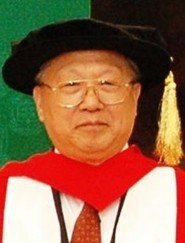

Leading this learned procession, Professor Lu Yongxiang is a scientist of the first order, well deserving of the Lucretian salute of rerum inventor (pioneer in science), whom for a decade the brightest minds of our country have called their leader as President of the Chinese Academy of Science.
From a hierarchical, hidebound bureaucracy to a strategic, pioneering and efficient meritocracy, Lu's presidential seal on the Academy has been transformative. In this regard he leads by example. For an authority on fluid power transmission and control and engineering in general, he is an exceptionally good listener. Lu does not pontificate, profess, or even lecture, rather he coaches, facilitates and supports fellow scientists allowing them to grow and prosper in their own way.
Notwithstanding his liberal approach to mentoring, Lu seems to have imposed a much more rigorous pace on himself right from the time of his school days. At seventeen, he enrolled as a scholarship student at Zhejiang University; as a Humboldt Fellow in Germany, he completed his doctoral studies in a record-breaking two years; and by the age of forty-five, he had assumed the presidency of his alma mater.
During his tenure at the helm of Zhejiang, Lu devoted himself to the solution of a phenomenon which has been deeply ingrained in our culture for two millennia, thus almost insoluble. While respecting the Confucian tradition of seeking truth by referring to the literature and deferring to past experience or elders in the discipline, our honorand pioneered the concept of excellence through innovation that has since served as a model for other Chinese tertiary institutions. His efforts have put the scholarship of research on an equal footing as that of teaching and learning. His fifty-five disciples in the form of research students and fellows and the many countless others who have benefited from his wisdom as leader of Zhejiang University and the Chinese Academy of Science have carried the message of "in search of truth and innovation" (求是創新) throughout the country. In fact this is the new motto Lu coined for Zhejiang, replacing the previous version "in search of truth" (求是) which in turn took after the eponymous Quishi Academy, the predecessor of Zhejiang. Mr Pro-Chancellor, as a Cantabrigian, you may be interested to note that Zhejiang, reputed as "Cambridge of the East", shares the same motto with "Cambridge in the New World". Harvard's Veritas in Latin translates exactly as 求是.
With equal vigour, our honorand brought this emphasis on innovation to the Chinese Academy of Science, particularly through promoting the flagship Knowledge Innovation Programme which has just entered its third phase in 2006. On organisational structure, it has broken down inter-disciplinary silos and fostered a pervasive problem-based perspective. On knowledge generation, the programme has expended most effort on the recruitment and retention of young and key scientists, to reward them on a meritocratic basis and to provide the necessary facilities to realise their ideas. On knowledge translation, the Academy has invested heavily in major Strategic Action Plan for Science and Technology Innovation, or SAPI, projects that ranged from rice genome sequencing to the construction of the Qinghai-Tibet Railway under permafrost conditions. Finally on knowledge dissemination, a topic Lu holds most dear, the ultimate goal is to raise the general level of scientific literacy in all of China through a sustained social marketing campaign.
Lu's personal impact extends far beyond the mainland. Close to home, he has made important contributions to the SAR, as a member of the University Grants Committee and of the Commission on Innovation and Technology. To many of us at the university he is a colleague, has made numerous substantial visits and serves on our honorary faculty. Globally his reputation is legendary. His fundamental insights into the time-honoured Freeman-Jinken and Vickers principles have changed electro-hydraulics thinking worldwide. More recently, our honorand has worked closely with the Academy of Sciences for the Developing World on a personal level and through the Chinese Academy of Science to bring about positive social change in developing countries through science.
I commend to you, Mr Pro-Chancellor, Professor Lu Yongxiang, senior statesman of Chinese science and a true pioneer in the best traditions of Confucius cum Lucretius, who has already earned a conventional degree of Doctor of Engineering by examination at the Technical University of Aachen, whose achievements have been recognised by nine honorary doctorates from Australia to the Ukraine, by medals and by many other honours, for the degree of Doctor of Science honoris causa.
Citation written and delivered by Dr Gabriel Matthew Leung, the Public Orator.



